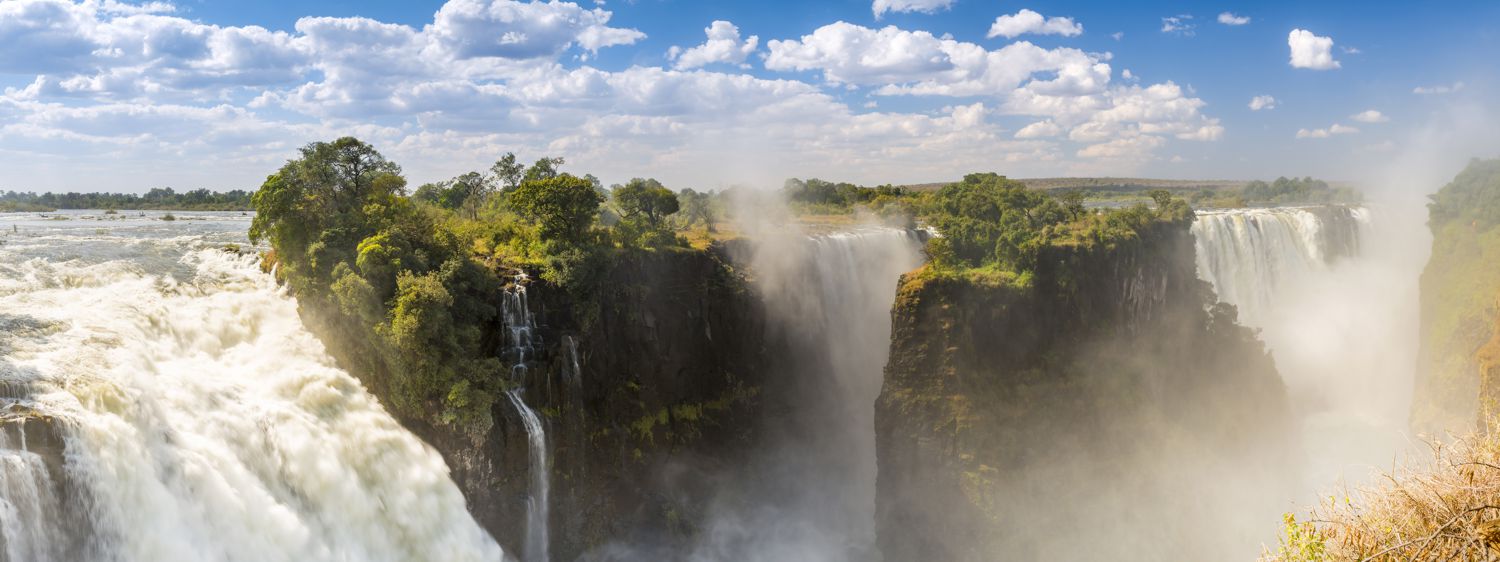Victoria Falls, located on the Zambezi River at the border between Zambia and Zimbabwe, is one of the most spectacular natural wonders of the world. Known locally as "Mosi-oa-Tunya," which means "The Smoke That Thunders," the falls are renowned for their breathtaking beauty and the immense volume of water that cascades over the edge.
The formation of Victoria Falls dates back to around 150 million years ago during the Jurassic period. The falls were created by the erosion of soft sandstone by the Zambezi River, which eventually led to the collapse of the riverbed and the creation of the falls. This geological process has resulted in a series of gorges that the river flows through, adding to the dramatic scenery.
The falls were first discovered by European explorers in 1855 when Scottish missionary and explorer David Livingstone became the first European to set eyes on them. He named the falls in honor of Queen Victoria. Livingstone was so captivated by the sight that he famously wrote, "Scenes so lovely must have been gazed upon by angels in their flight."
What makes Victoria Falls truly special is its sheer size and the powerful mist that rises from the falling water, creating rainbows that can be seen from miles away. The falls are approximately 1,708 meters wide and 108 meters high, making them the largest curtain of falling water in the world. Visitors are captivated by the thunderous roar and the stunning views, making it a must-visit destination for nature lovers and adventure seekers alike.
At a glance
Why you should visit
Victoria Falls is a destination that promises an unforgettable experience for every traveler. The sheer size and power of the falls are awe-inspiring, with water plunging over 100 meters into the Zambezi Gorge.
The surrounding area is home to diverse wildlife, including elephants, buffalo, and various bird species, making it a haven for nature enthusiasts. Visitors can enjoy safaris and wildlife viewing in nearby national parks.
For those seeking adventure, Victoria Falls offers a range of thrilling activities such as bungee jumping, white-water rafting, and helicopter tours, providing unique perspectives of the falls. The lush rainforest around the falls is filled with exotic flora and fauna, creating a picturesque setting for nature walks and photography.
Our favourite time to visit
The best time to visit Victoria Falls depends on what you want to experience.
During the high water season, from February to May, the falls are at their most powerful, with the highest volume of water flowing. This is the best time to see the falls in their full glory, but be prepared for heavy mist and spray.
In the low water season, from August to December, the water levels are lower, making it easier to see the geological formations and take part in activities like swimming in the Devil's Pool. This is also a great time for wildlife viewing as animals gather around water sources.
The shoulder seasons, in June to July and January, offer a balance between high and low water levels, providing good visibility of the falls and pleasant weather for outdoor activities. No matter when you visit, Victoria Falls promises an unforgettable experience filled with natural beauty and adventure.



